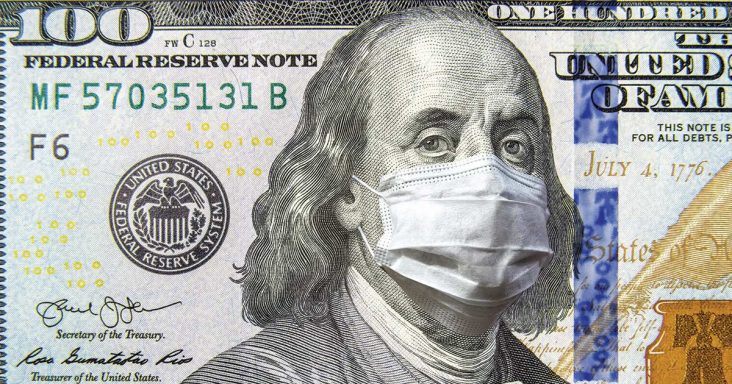Executive roundtable: 2021 will be difficult; all eyes on 2022 for recovery
by December 6, 2020 12:41 pm 1,933 views

The Central Arkansas Human Resources Association (CAHRA) recently convened a roundtable of business executives to discuss the impact of COVID-19 on employees, what changes have been made in response to the pandemic, and what expectations are settling in for 2021.
The roundtable included Shannon Newton, president of the Arkansas Trucking Association; Drew Weber, chief operating officer for U.S. Pizza Co.; and Gretchen Hall, CEO of the Little Rock Convention & Visitors Bureau.
All three executives agreed that 2021 would resemble a lot of 2020; all eyes are on 2022.
Newton said the trucking industry was prepared to mobilize quickly after the pandemic reached American shores.
“Our industry has a history of springing into action during a crisis. If you were to think back about hurricanes or tornadoes and other natural disasters, we have a little bit of experience in shifting quickly and meeting an immediate need due to something that was unexpected,” she said. “So certainly yes, we did that again. I think this was a larger scale than we had ever seen before. And then just the extent that it continued to evolve not only was it the immediate grocery rush for milk and toilet paper and how we were going to be able to meet those needs, but then extending beyond to how we were going to keep the trucks moving while everything else seemed to stop.”
Hall saw the convention center business grind to a standstill for months, but the depth of the impact was a once-in-a-lifetime event.
“I think the magnitude of it was certainly larger than we ever anticipated,” she said. “We did see part of it coming. We knew it would affect our industry, but to the degree it has affected our industry, no one has ever seen anything that has impacted tourism like this.”
Weber, who has decades in the restaurant business, made immediate changes to keep U.S. Pizza’s doors open when COVID-19 reached the state. Still, it was a brutal adjustment for a seasoned business that relies on in-store traffic and a younger workforce.
“We had to change basically our whole platform. For 48 years, we would never do delivery – that just wasn’t U.S. Pizza,” he said. “We saw a 5% drop in sales immediately for a month and a half. And then we ended up having to use DoorDash, and all of a sudden then we had an extra $120,000 in sales coming in the door. But had to lay off half our staff because the indoor dining was gone… It was a big shock to all of us; we went from doing 80% dining to now we’re 80% to go. So it’s changed our business dramatically.”
Hall had to lay off employees due to the enormous drop-off in convention business. That has had an impact on employee morale, and she’s not realistically expecting a quick return to normal in 2021 despite promising vaccines.
“We had to make significant cuts within our own industry and within our own organization. And then throughout our industry, we’ve seen major cuts,” Hall said. “So we’ve got a lot of hospitality industry workers, especially in the hotel world that are still laid off. So morale is hard.
Although within our organization, you know, we’re like a close knit family. We’ve been able to rebound and I’m really proud of all of our employees that are still with us. The unfortunate part of our business, especially on the hotel side, is we really don’t anticipate a true pickup or recovery efforts to start until late next year and beyond,” Hall added.
Weber agreed that 2021 is going to be as rough-and-tumble as 2020.
“I’m waiting for 2022, to be honest with you,” Weber said. “I don’t see anything turning around or getting massively better to where people feel comfortable until they believe in a vaccine, until there is a vaccine to feel comfortable enough to dine in. I don’t see us being allowed to have parties. We’re done being able to put 20 tops together. We can’t do that right now.
“We’ve added cashiers, we’ve added telephones, we changed phone systems through all of this to be able to serve people quicker, better and more efficiently. So I don’t see it changing anytime soon,” Weber said.
Newton is confident that trucking organizations will hold steady as the need to move goods across the country and the final mile remain critical. However, she warns that safety for workers remains a top priority.
“Trucking companies for the most part, your frontline workers, are incentivized to work. And so wrapping our minds around how we can encourage them to be safe and be assured that their job will be there and that they can take off and be compensated with something that we kind of had to figure out relatively quickly. You don’t want a driver to show up or continue to report for work if they’ve been exposed or if they have some sort of inkling or concern that they might have some symptoms,” Newton said.
“So implementing some sort of policy and ensuring that you have a lot in this amount of hours or extra sick leave, to encourage them to take care of themselves so that they don’t make a small problem a much larger problem. That’s something from an industry perspective that our members have adopted.”
You can watch an abbreviated version of the roundtable discussion in the video below. To watch the full Central Arkansas Human Resources Association roundtable, click here.
